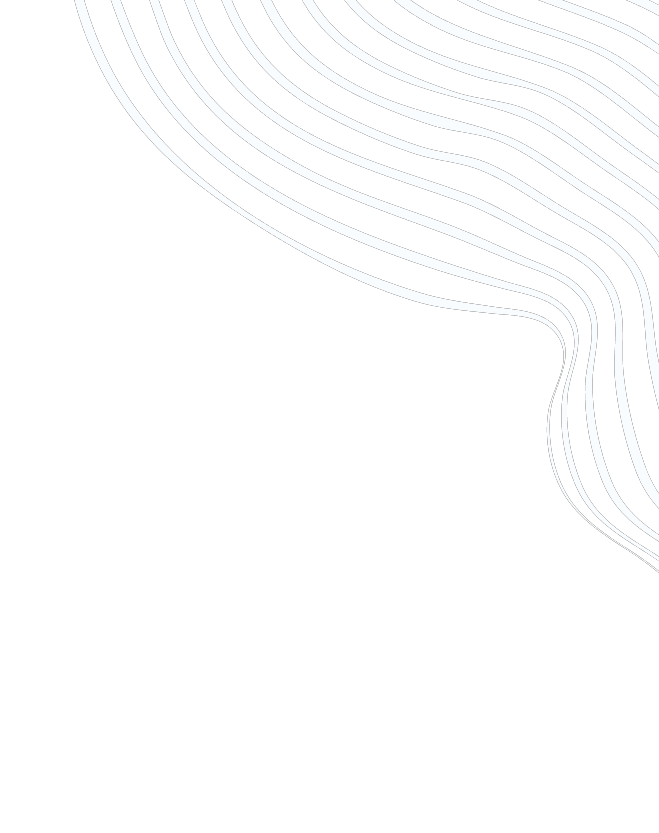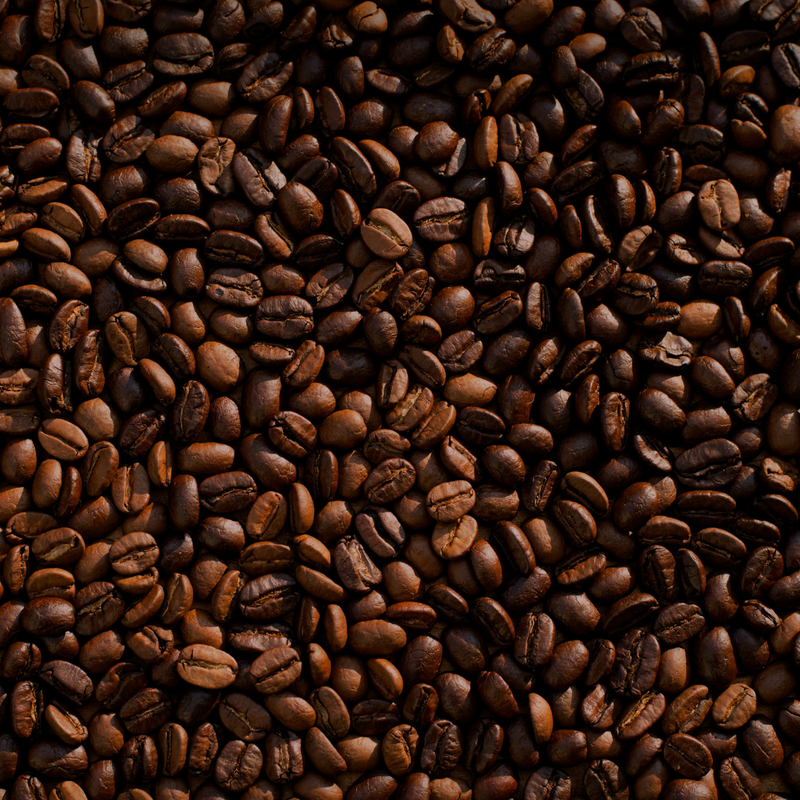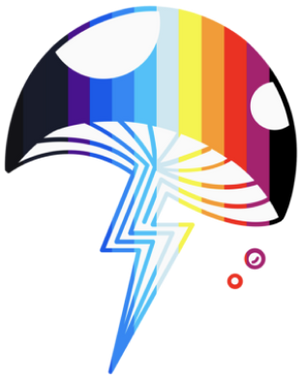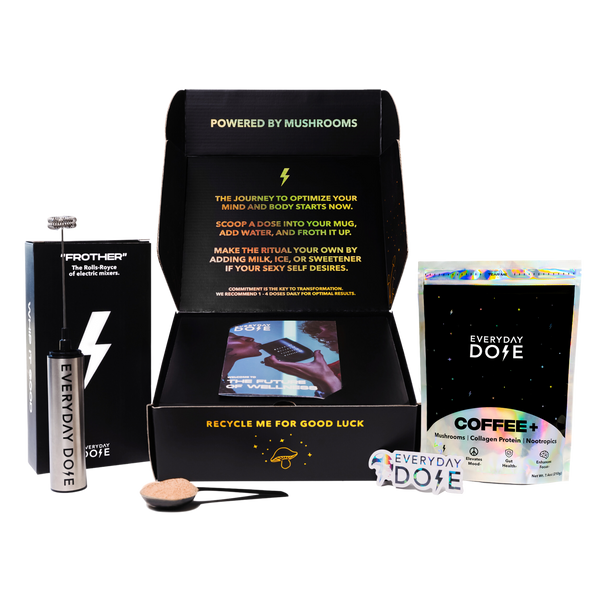

The Science Behind Caffeine Crashing and Afternoon Slumps

Do you ever notice your focus gradually fading and fatigue hitting hard after that innocent latte intended to keep you alert and energized? It's a common scenario — the sudden energy drop post-caffeine that leaves us feeling more drained than before. But why does this happen and what can be done to prevent it? Stay tuned for intriguing insights into the science behind the afternoon slump, and learn about our recommended anti-crash drink solution that can help you power through your day with sustained energy and focus.
If you’re like most people, coffee is your best friend in the morning because of how it wakes you up. It drags you out of bed, gets you to work, and helps you do all of your daily tasks with gusto.
It stands to reason that not only is a caffeine crash inconvenient — it can affect serious things like job performance if you don’t get it under control. And, like many things, the first step in winning the fight against caffeine crashes is knowing your enemy.
Here’s how a caffeine crash typically shows up:
- Fatigue: You might feel more tired than before you had caffeine, struggling to keep your eyes open and pinching yourself to stay awake.
- Irritability: Your mood might take a turn for the worse, making even minor inconveniences feel unbearable. More than that, you might scare off your coworkers!
- Difficulty Concentrating: Your razor-sharp brainpower leaves you high and dry, and tasks that seemed easy earlier now feel overwhelming.
- Headaches: Caffeine narrows blood vessels, and their rebound expansion as caffeine leaves your system can trigger a headache.
- Cravings: You may find yourself reaching for more coffee, sugar, or quick snacks as a way to quickly get your energy levels back up.
Fundamentally, the fatigue experienced post-caffeine buzz doesn't stem directly from caffeine. Instead, it's the adenosine receptors in your brain taking over once the caffeine blockade is lifted. Adenosine is a neurotransmitter known for its sedative effects. Your body naturally builds adenosine throughout the day, which contributes to your sleep-wake cycle. Caffeine, as the star player at the adenosine party, blocks those receptors, preventing the sleepy molecules from taking over. This allows you to feel alert and awake.
But the party buzz doesn't last forever, thanks to a concept in pharmacology called half-life. The concept of "half-life" in pharmacology, coined by the German chemist Otto Stern in 1913, refers to the time required for a substance to reduce to half of its initial value. In the case of caffeine with a half-life of around 6 hours, consuming 200mg at midday would still leave about 100mg by midnight, affecting the nervous system as you settle down for sleep.
We created Everyday Dose to have the right amount of caffeine (80% less than your average Starbucks) and added brain-boosting mushrooms, flow-state-inducing nootropics, and collagen to our coffee extract so that you can enjoy your favorite morning ritual, without any side effects or negative long term impact on your body.


You might find that your afternoons are a constant battle with the urge to nap on your keyboard, almost like the afternoon fatigue is written into your DNA. It might very well be, or it could be what some call a siesta gene, with a natural lull in the circadian rhythm. It's also the time caffeine is wearing off for many regular consumers. For others, it's a matter of sleep hygiene and regularity, as these factors influence how restful the previous night was and how pronounced the midday slump might be.
However, powering through your afternoon does not have to be synonymous with caffeine dependence or crashing. Enter adaptogens, a class of herbs that, unlike direct stimulants such as caffeine, work to balance rather than spike energy levels. Mushroom coffee harnesses the adaptogenic power of mushrooms to offer a natural, sustained energy lift without the rollercoaster of a caffeine crash. Adaptogens work to enhance the body's ability to counter stressors that contribute to fatigue, making them a choice more aligned with long-term health and vitality than unhelpful caffeine habits.

So, how can you avoid the dreaded caffeine crash? As it turns out, there are plenty of small (and some not-so-small) adjustments you can make to your daily routines that can help mitigate the crash. Here are a few tips you can try.
1. Limit Caffeine
This may be a little obvious, but one of the simplest ways to avoid a caffeine crash is to limit caffeine in the first place. This could mean cutting back to one or two cups of coffee a day, switching to decaf, or avoiding drinks with high doses of caffeine (like energy drinks).
Notice that we said this was the simplest place to start, not the easiest. Cutting back on caffeine can lead to symptoms of caffeine withdrawal, especially if you quit cold turkey.
These withdrawal symptoms can include:
Headache
Tiredness
Brain fog
Trouble concentrating
Irritability
Feelings of depression
You might be wondering how much caffeine you should be drinking. It all comes down to genetics — some people quickly metabolize caffeine and can drink a pot of coffee without a problem. Others metabolize it slowly and struggle to get through two cups without the caffeine jitters.
Pay attention to your body, and you’ll soon find your limit. This is why our mushroom blends only contain up to 45 mg of caffeine. It’s enough to help you feel focused and alert, but not enough to make you feel shaky or stressed.
2. Try Spreading Out Your Coffee Consumption
Sipping your coffee strategically throughout the day can help you sidestep energy crashes. Instead of chugging multiple cups at 6 A.M., try spreading them out to maintain a steady caffeine level.
Opt for a cup to wake up, a cup around mid-morning, and a cup to power you through lunchtime. Just make sure you try to keep your coffee consumption confined to the first half of the day.
It might seem like avoiding coffee before bed is a no-brainer — but it’s also important to try and keep caffeine out of your afternoon plans. Caffeine has a half-life of four to six hours, which means that’s how long it takes for your body to clear half of the caffeine from your system. That means six hours after your morning coffee, you still have half of the caffeine coursing through your veins.
If you need an afternoon pick-me-up, try an herbal tea, infused water, or unsweetened cacao instead. You may want to make sure you avoid other caffeinated drinks in the afternoon, too. These include soda, energy drinks, and green tea.
3. …But Don’t Drink Coffee at Bedtime
Even if you think caffeine doesn’t affect your sleep, it probably does. Drinking coffee too close to bedtime can delay the release of melatonin, your body’s natural sleep hormone, making it harder to wind down. Instead, try calming alternatives like herbal tea (chamomile and valerian tea can actually encourage high-quality sleep, golden milk, or a warm mug of decaf.
4. Beware of Sneaky Sources of Caffeine
Caffeine is almost synonymous with coffee, but you might be surprised what else it can show up in. For instance, it’s often added to sodas, lemonades, and flavored refreshers to provide an extra boost. Other caffeinated beverages like green and black tea are completely natural.
Keep in mind that coffee beans aren’t the only source of caffeine. Cocoa beans also contain caffeine, and a bar of 50 percent dark chocolate can have about 70 mg of caffeine. It can also be a sneaky addition to energy supplements, so make sure you check the caffeine content of your drinks and snacks if you’re trying to avoid it. Otherwise, these sneaky sources of caffeine could derail your efforts and keep causing caffeine crashes.
5. Don’t Drink Coffee on an Empty Stomach
Drinking coffee on an empty stomach is a recipe for jitteriness, stomach discomfort, and energy crashes. Food can help slow caffeine absorption, which can give you a smoother energy boost. Instead of roughing it, pair your morning cup with a balanced snack or meal.
Try a banana with peanut butter, Greek yogurt with granola, or eggs on whole-grain toast. These combos stabilize your energy, making your caffeine buzz last longer and feel more sustainable.
6. Get Plenty of Sleep
Many of us drink coffee to combat morning sleepiness. Once the caffeine crash hits, many people keep drinking coffee to keep themselves going. Eventually, this can lead to difficulty sleeping.
You can avoid this vicious cycle by simply making sure you get enough sleep to begin with. Experts recommend at least seven hours of sleep per night. You should also make sure your sleep quality is good by establishing a bedtime routine and practicing good sleep hygiene.
7. Stay Hydrated and Eat a Balanced Diet
Dehydration can also cause tiredness, so make sure you’re drinking enough water and getting plenty of electrolytes. The current recommendations are about 12 cups of water a day for women and 16 for men.
High blood sugar levels and blood sugar crashes can also make you feel sluggish and tired. You can support stable blood sugar levels by pairing carbohydrates with proteins and fats, making sure each meal is balanced and nutritious.
8. Move Your Body
This one might seem counterintuitive — after all, doesn’t exercise make us more tired? This is just one way that staying active can help mitigate the caffeine crash.
Moving our bodies every day can help us feel more tired at nighttime and increase sleep quality, which can help us feel more refreshed in the morning (and less likely to reach for caffeine throughout the day). Plus, exercise physically increases our body’s energy production.
9. Swap for More Sustainable Energy
Finally, you may want to consider swapping caffeine for a more sustainable energy solution. For instance, theobromine is a stimulant found in cocoa that produces much more stable energy levels and doesn’t have the same crash that caffeine does.
You can also try to support brain power by taking nootropics. These supplements can help support focus, stable energy, memory-making, and mental health.
Popular nootropics include:
Lion’s mane mushroom
L‑theanine
Rhodiola rosea
Ashwagandha
Ginkgo biloba
Choline
If you’re someone who regularly empties the coffee pot, you might find that you end up needing four cups of coffee just to function. As your tolerance increases, you might get even less energy from coffee — but the crash can still hit just as hard. This is because your body adjusts to caffeine by producing more adenosine receptors — in fact, these receptors can increase by as much as 20% with chronic caffeine consumption.
When the caffeine wears off, adenosine floods back in, often in greater amounts, leading to more intense fatigue and brain fog. In other words, having a higher caffeine tolerance doesn’t make you immune to caffeine crashes — it can actually amplify them because your body is more reliant on caffeine to regulate energy.
Is There Any Caffeine That Doesn’t Make You Crash?
Sorry, coffee lovers — caffeine is caffeine, and it all behaves the same way once it’s in your body. Whether it’s from coffee, energy drinks, or tea, caffeine will always cause you to crash as it wears off.
However, pairing caffeine with L‑theanine, an amino acid found naturally in tea, can help. L‑theanine can encourage calmness and focus and actually counteract the negative side effects of coffee.
Overall, the effects can leave you feeling relaxed yet alert. And, while you can choose to swap to matcha or take a supplement to take advantage of this effect, you can also enjoy the best of both worlds with our L‑theanine-infused mushroom coffee.
How To Slowly Cut Back on Caffeine
Cutting back on caffeine doesn’t have to be a miserable mess of irritability and headaches. Sure, if you quit cold turkey, you’ll get slammed by withdrawal symptoms in full force in about 24 hours. That’s why it’s generally much better to slowly cut back on your caffeine intake over the span of about two weeks.
Here’s how you can reset your caffeine tolerance and save yourself the headaches:
Slowly Reduce Your Intake: Swap one cup of regular coffee for decaf or half-caf each day. You can also swap one or two cups for some black tea, which has significantly lower caffeine.
Change Your Brewing Method: Choose darker roasts or use less coffee grounds to lower the caffeine content of each cup of coffee.
Opt for Low-Caf: If the idea of drinking watered-down coffee doesn’t sound appealing, we don’t blame you. Instead, go for a low-caf cuppa like our mushroom coffee to help lower your caffeine consumption.
Invest in Natural Energy Production: Staying hydrated, exercising, and eating nutrient-rich snacks are all ways you can help your body make more energy without needing a caffeine boost.
Replace the Ritual: If your morning coffee is less of a necessity and more of a comforting habit, try replacing it with herbal teas or caffeine-free lattes.
What To Do if You’ve Already Crashed
So, you’re knee-deep in a caffeine crash, and the struggle is real. We know it might feel all too tempting to reach for another shot of espresso or a sugary snack. However, doing so will only delay your crash by another couple of hours — not cure it.
Instead, power through the crash by trying these strategies:
Hydrate, Hydrate, Hydrate: Dehydration can make fatigue worse. Drink a tall glass of water and try adding electrolytes to stay hydrated.
Eat More Protein: Protein and fats release energy much more slowly than carbs. They might not jolt you awake, but they’ll still give you energy hours after you eat them.
Go for a Walk: Physical activity, even just a brisk five to 10-minute walk, can increase blood flow and oxygen to your brain, helping you feel more alert. Plus, it’ll get you out of the office, which can give you an opportunity to refocus.
Take Deep Breaths: Deep breathing exercises or mindfulness techniques can reduce stress and help you reset your focus. Try inhaling for four counts, holding for four, and exhaling for six.
Let in Some Natural Light: Sunlight helps regulate your circadian rhythm and boosts your mood (yes, please!). If you’re crashing, try stepping outside for a quick break or sitting near a window.
Stretch It Out: Stretching releases tension, increases circulation, and can give you a quick brain break if you need time to refocus.
Everyday Dose prides itself on its blend of adaptogenic mushrooms that, through a unique extraction process, concentrate and amplify their health benefits. We combine the adaptogenic qualities of Lion's Mane and Chaga with the smooth notes of organic coffee extract and collagen protein, creating a drink that boosts focus and energy without the caffeine comedown. If you find this claim too unbelievable, here are numerous testimonials that speak to the drink's effectiveness.
It's of utmost importance to mention here that while adaptogens are a promising and growing field of research, they're not a panacea, nor should they be regarded as the only solution to an inherently complex issue like energy management. It's also critical to reiterate the importance of consulting a healthcare provider before making any significant changes to your diet, particularly if you have existing health conditions or are pregnant or nursing.
In summary, the age-old practice of enjoying a cup of coffee is not under fire, rather, coffee rituals are a significant part of human culture, social connection, and personal enjoyment. It's the over-reliance on the quick fix with unsustainable energy levels that needs re-evaluation. When it comes to vitality, it's the long game we're after, a game adaptogens are more than ready to be a part of, alongside smarter caffeine choices and a balanced lifestyle.
Unfortunately, caffeine doesn’t just cause dramatic energy crashes. Taking too much caffeine can affect the whole central nervous system, causing a jittery feeling and strong feelings of stress or anxiety. It can also cause swearing, racing heart rate, difficulty concentrating, and tiredness (oddly enough).
Drinking coffee on an empty stomach can also contribute to indigestion because of how acidic it tends to be. If you tend to make a habit of overdoing your caffeine intake, you may even develop unhealthy blood pressure levels as a result.
Coffee is a popular part of the morning for most Americans, and it does come with its benefits. However, caffeine can also cause massive crashes in energy.
Luckily, you can avoid caffeine crashes by limiting caffeine in general, avoiding caffeine in the afternoon, and swapping your daily cuppa for some Everyday Dose Mushroom Coffee+. To try our nootropic mushroom blends for yourself, shop all of our options today.
Sources:
Caffeine Withdrawal - StatPearls | NCBI Bookshelf
Caffeine & Sleep: How Long Does Caffeine Last & Keep You Awake? | Houston Methodist On Health
Chocolate, dark, 45- 59% cacao solids | FDA
How Much Sleep Do You Need? | The Sleep Foundation
Water: How much should you drink every day? | Mayo Clinic
Does exercise really boost energy levels? | Harvard Health
6 surprising health benefits of walking | BHF
The effects of coffee consumption on sleep and melatonin secretion | ScienceDirect







